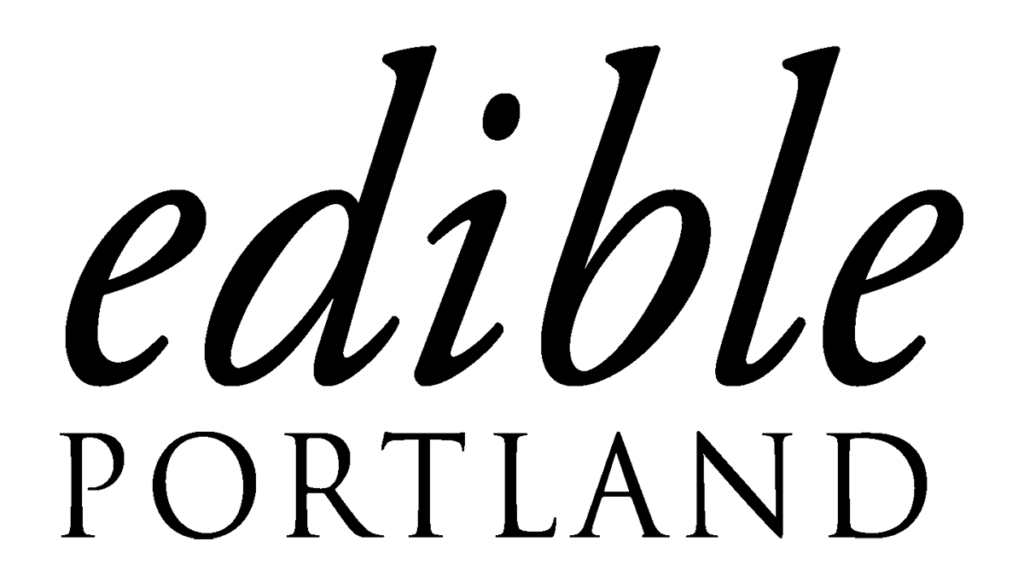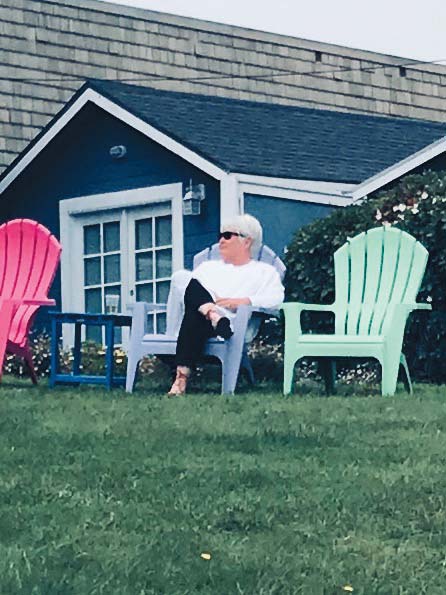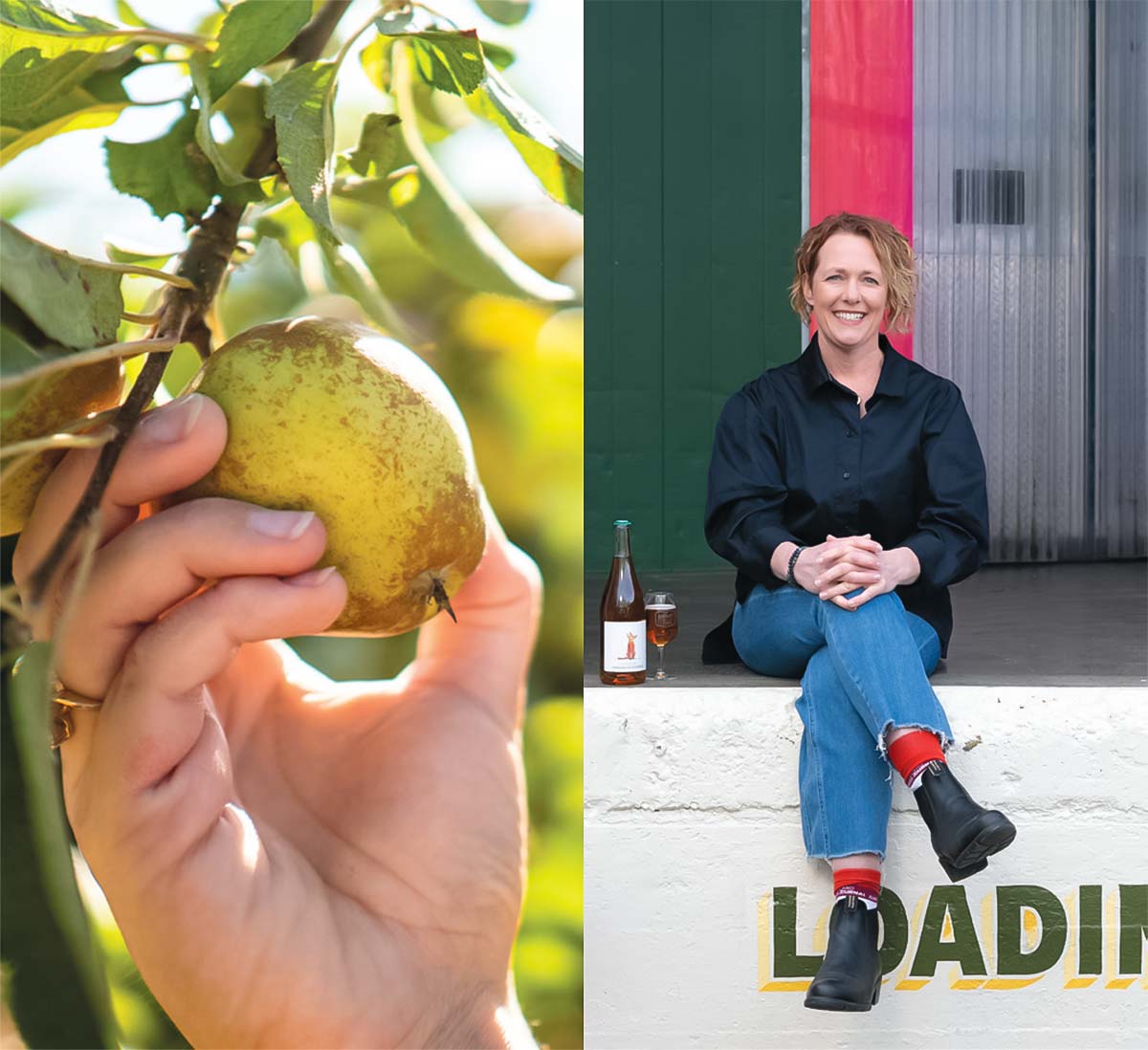
If you have not experienced Bauman’s Cidery on Oak Street, run, don’t walk, to enjoy the excellent cider varieties and Chef Daniel Green’s thoughtful and delicious food.
Meantime, enjoy reading about its history. Founder and Head Cidermaker Christine Walter starts at the beginning, “I am from a big farm family, tons of siblings and cousins, so we grew up working on the farm every day during the summer and every weekend during the school year. We were on the farm, hoeing, weeding and harvesting ripe crops. We grew a lot more seed crops and large-sized crops. It was before we started producing what’s at the farm stand now. Those crops precipitate a very different model of farming. Now, we grow for diversity to ensure we have everything a person might want. Back then, we grew acres and acres of onions, mustard and beets. Then we harvested them for seed. Now, we grow berries, nuts, apples, cherries and a variety of stone fruits. Incidentally, many people don’t know that the Mountain Rose apple varietal, the one that is pink inside, is indigenous to our farm. You can find it in other areas, but it began with us. So that was my very romantic childhood; I realize that now. However, at the time, I was certain I would lose my fingers to frostbite.”
“I swore I would never return to the farm when I went to college. I never wanted to work that hard again.” Her journey took her through university, a brief brush with med school, a marriage, the birth of her two daughters, a divorce, twenty-three years as a licensed massage therapist, ending with her discovery that she is a scientist at heart, Christine eventually found her passion – Cider Making.
She met other cidermakers, finding them to be her beautiful, nerdy people, and became laser-focused on the industry. She signed up for “Cider Camp,” now the Cider Institute, but it was just Peter Mitchell’s Cider classes back then. She now serves on the board of the Cider Institute, a real passion project for her. She continues, “We’ve always grown all kinds of apples on the farm, and I encouraged my uncle to plant cider apples. In traditional cider-making, we treat the cider apples as they ripen with a winestyle process–slow and cold over the winter in barrels. Cider like this is ‘just the apples talking to you.’ As the cider maker, I have not made many contributions other than the right timing and using the suitable vessel.
“On the farm, we grow berries and stone fruits so that I can co-ferment and have fresh, ready-made flavor opportunities at the end of fermentation. It starts with good sourcing, and we add the whole fruit, utilizing everything, every part of the fruit. We sweeten it with fresh apple juice, giving you a rich flavor. And so most of our cider’s ingredients are apples and mulberries or apples and peaches and raspberries. People ask what makes our cider so successful and popular, and it’s been this ability to stand with one foot in each camp, honor what people want, and practice traditional cider making. I can pay the bills, unlike many traditional producers who don’t bring in the money to pay for themselves and that style of agriculture, fermentation and aging. Our Loganberry Cider pays all the bills; it’s 40 % of our sales. Though I am a traditionalist, I feel good about selling Loganberry Cider; it is two ingredients, and I know where they grow and how they are processed.
I wonder when people will learn to enjoy the traditional ciders more. In November, I researched this exact question for a panel I was on in Latvia. I wanted to know how our numbers have changed from year one to now. What percentage of our sales are traditional ciders, apple juice from high tannin apples. I found that sales stayed at 20% the entire time, but the great news is that it’s 20% of a rapidly increasing market. People‘s appetites are becoming more refined, developing an appreciation for the traditional. Many new producers are entering the market of traditional ciders. Here in the Northwest, we live in a beautiful bubble of craft and artisanal appreciation that much of the US does not.
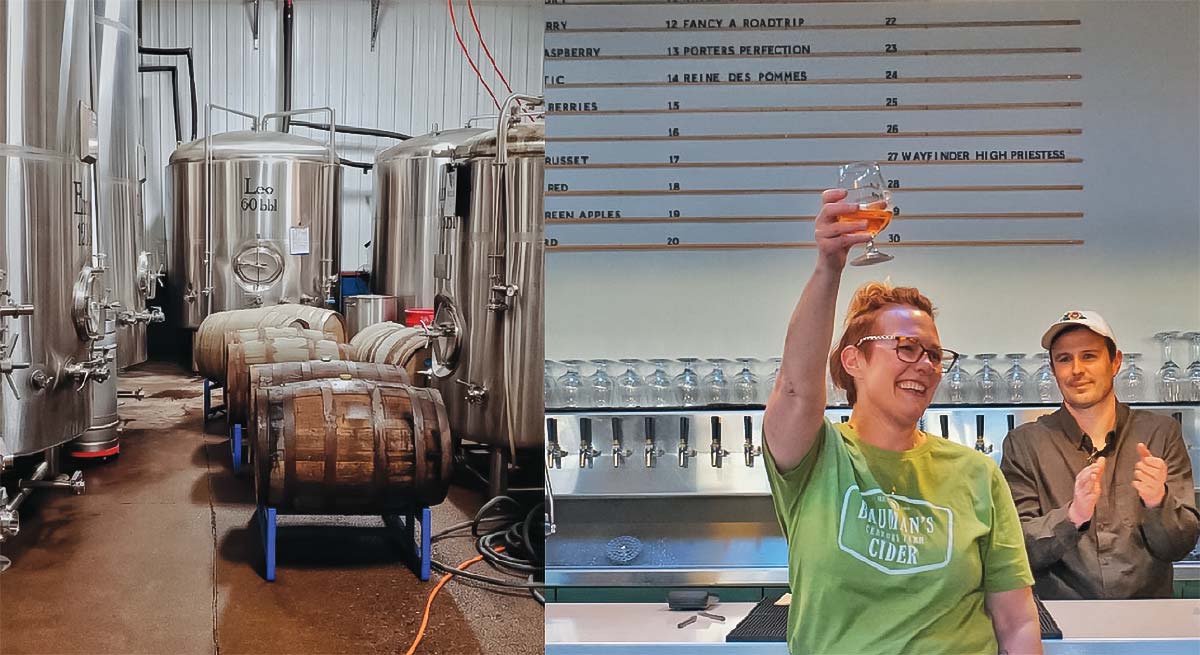
We first brought our ciders public on February 6, 2016, when Portland’s Cider Con was launched. I poured from my first kegs at the cider bar Bushwackers. Now, years later, my daughter Hannah is joining me. Last fall, we were halfway through harvest when it became apparent that the amount of cider we were making required a larger production area. Suddenly, we needed to be shopping for a space. I had to acknowledge how difficult it would be to fit out a blank warehouse, do all the floor drains and fittings, and do the work that could take two years of engineering and permitting. I said, “We need to be specific and narrow with our search. We need a place that has floor drains and a glycol loop.” So, we met with our distributor on November 6, and I asked, “Hey guys if you have anybody moving from their current facility or growing out of it, we need about 10000 sq ft. The unbelievable response was, “Well, Christine, John Harris called this morning and said he’s closing his brewery. The main room is 10000 sq ft.” Just incredible, right? And so I called John Harris from that meeting, drove right here, looked at it and made the deal.
Daniel, the Chef at the Bauman’s Cider House on Oak Street, and Christine knew each other previously. He was reading books about how to make cider and went to Christine for advice. She started giving him tips on making cider, and then we started caring for an orchard on Savvy Island. When I secured this building, I asked Daniel to come take a look. When he saw the kitchen, he responded, “I love it. I love everything you are saying. It’s a great idea. Initially, I was just helping her determine what food she would like to offer. Being hired here was an organic thing: working with someone you know and get along with and with whom you share passions has real value. I don’t think I started until the second week in March. We have a great staff, and it’s beautiful. It’s incredible how everything came together.
I started working in my friend’s parent’s restaurant in high school. I went to college not knowing what to do like most people. I was playing sports and not thinking much about my classes. My best friend got me interested in studying business and hospitality. Hospitality was a way to travel. I grew up in Ohio, so at 19 years old, I wanted to leave, though I did appreciate my huge family. We didn’t go out to restaurants. My mom cooked every night, and we’d go to my grandparents’ house on Sundays. We’d spend all day around food, so I subconsciously knew it was an important thing. As I grew older and met new people, I liked seeing what people chose to eat. I soon realized that not everyone prioritizes food like that. It was cool to understand that I grew up with this unique way of being around food. When I began working, I focused on the front of the house. I wanted to work in tourism and restaurants, so I moved to Australia. I did an internship in a hotel and was working in restaurants. I was always hanging out with the kitchen folk, always interested in food, so I slowly started picking up a knife. I learned from some cooks and chefs, which motivated me. And, I began to cook at home.”
We are so glad that Chef Daniel picked up that knife. Treat yourself to his flavorsome Stracciatella with Olive, Radish, & Seeded Crackers or his Crab Roll with Miso Mayonaise & Potatoe Bread, or the Asparagus, Potato, Raab with Green Garlic, Hollandaise and Bacon or one of his other tasty dishes.
Pair it with Bauman’s inviting ciders, such as the Clyde’s, made from over a dozen estate varieties, or the Idaho 7 dry-hopped cider with Lemongrass and Meyer lemon zest, or the Reine de Pommes, “the Queen of Apples,” a French bittersweet blend. All ciders hover in the 6 – 7% ABV range, so that is another advantage if you are looking for low-alcohol beverages.
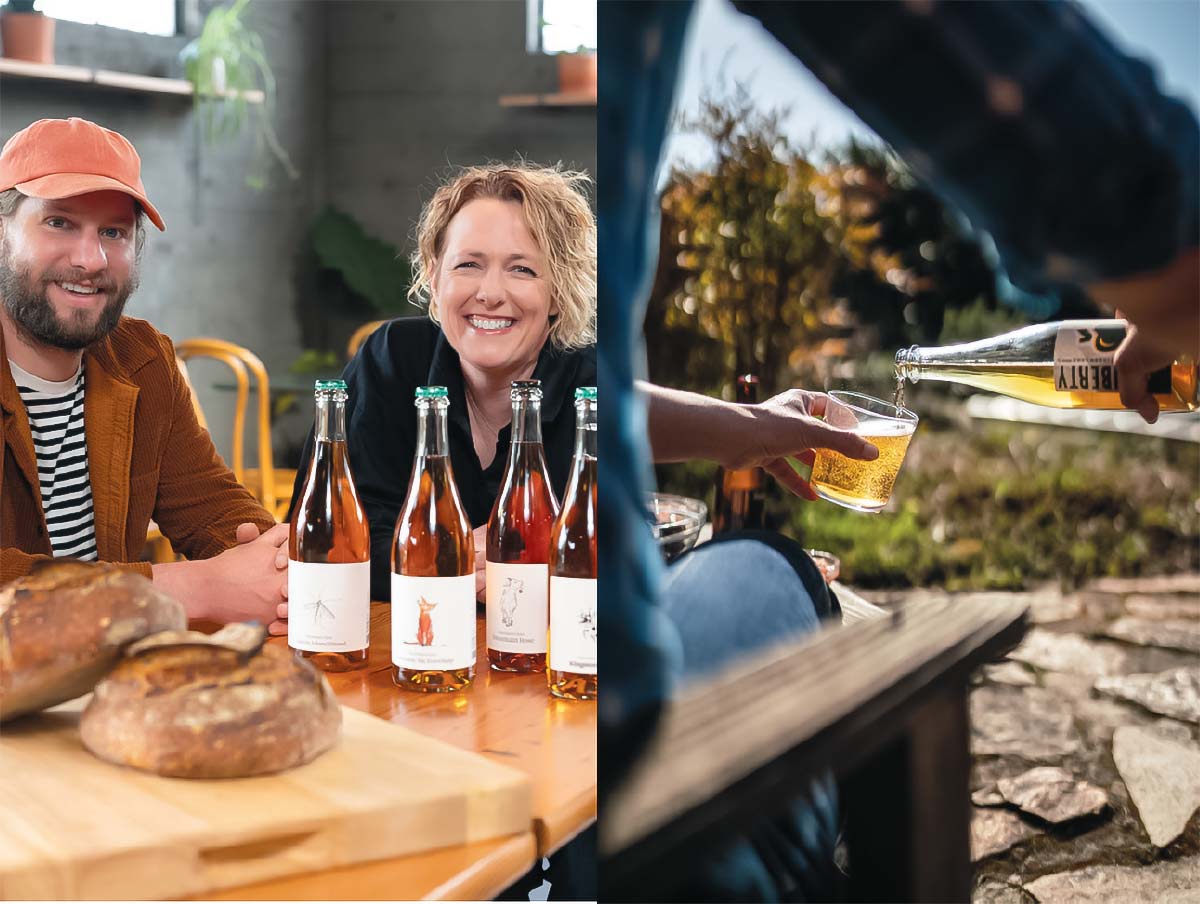
On June 20, 2024, the Northwest Cider Association hosted their Northwest Cider Cup Awards Ceremony. Bauman’s was awarded in the following categories:
- Gold in High-Tannin Ciders for Endless Harvest
- Bronze in Low-Tannin Ciders forclyde’s Dry
- Silver in Post-Fermentation Addition Dry for Big Bertha
- Gold in Red Fleshed for Mountain Rose SV
- Silver in Single Varietal for Stoke Red SV and Bronze for Kingston Black
- Bronze in Herbed for Strawberry Mojito
- Medium Cidery of the Year
- One of the tied Best of Show Runners up for Endless Harvest
- Best of Show for Mountain Rose SV
Visit baumanscider.com to learn all about Bauman’s Ciders Oak Street, or drop by 930 SE Oak St, Portland, OR 97214
